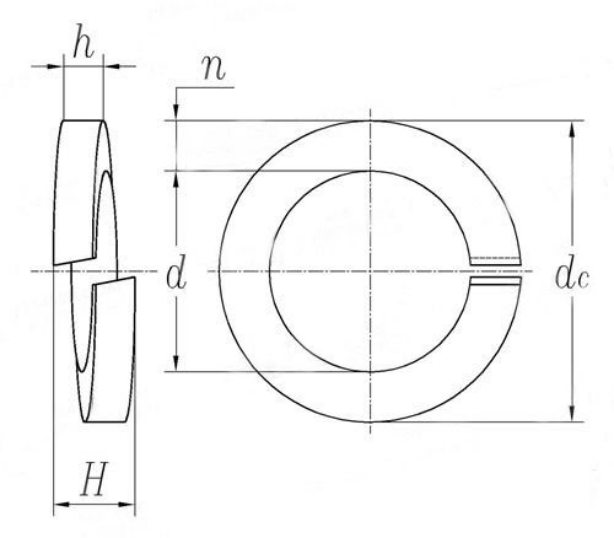stud bolt with hex head exporters
Dec . 23, 2024 12:08 Back to list
stud bolt with hex head exporters
Stud Bolts with Hex Head An Overview of Exporters
Stud bolts with hex heads are essential components used in a variety of industries, including construction, automotive, and manufacturing. Known for their high strength and reliability, these fasteners are designed to provide secure and stable connections in various applications. With their growing demand in global markets, there has been a significant increase in exporters specializing in stud bolts with hex heads. This article explores the characteristics of these fasteners, their applications, and the role of exporters in meeting the needs of international buyers.
Characteristics of Stud Bolts with Hex Heads
Stud bolts are long threaded rods that are typically made from high-strength materials such as carbon steel, stainless steel, and alloy steel. The hex head design allows for easy installation and removal using a wrench, making them user-friendly in many situations. The durability and tensile strength of stud bolts make them suitable for high-pressure and high-temperature environments, proving crucial in industries that require heavy-duty fastening solutions.
The hexagonal shape of the head provides a larger surface area for gripping, allowing for more torque to be applied without the risk of slipping. This is particularly important in critical applications where the integrity of the fastening connection is paramount. Additionally, stud bolts are often available in various sizes and grades, catering to specific requirements of different projects.
Applications of Stud Bolts
Stud bolts with hex heads are widely used across several sectors. In construction, they play a vital role in securing structural components, such as beams and columns, ensuring the stability and safety of buildings and infrastructure. In the automotive industry, these fasteners are used in engines and chassis assemblies, where high strength and reliability are essential. Stud bolts are also common in the oil and gas sector, where they are employed in pipelines, rigs, and refineries to connect various components under challenging environmental conditions.
stud bolt with hex head exporters

Furthermore, the marine and aerospace industries utilize stud bolts for mounting engines, securing equipment, and various other applications where lightweight and strong fastening solutions are necessary. As industries continue to advance and innovate, the demand for high-quality stud bolts is expected to grow.
The Role of Exporters
With the increasing global demand for stud bolts with hex heads, exporters play a crucial role in connecting manufacturers to international markets. These exporters are responsible for ensuring that the products meet the necessary quality standards and comply with import regulations in different countries. They often work closely with manufacturers to maintain consistency in quality and to ensure that the products are available in various specifications to meet diverse customer needs.
Exporters not only facilitate the sale of stud bolts but also contribute to the development of strong relationships between manufacturers and international clients. They provide valuable market insights, helping manufacturers understand emerging trends, customer preferences, and regional requirements. This information is vital for manufacturers to adapt their offerings and enhance their competitiveness in the global marketplace.
Moreover, exporters often manage logistics and supply chains, ensuring timely delivery and minimizing delays caused by shipping and customs processes. This aspect of their work is essential for maintaining customer satisfaction and trust, factors that are vital for repeat business.
Conclusion
Stud bolts with hex heads are indispensable components in many industries, and the role of exporters in bringing these products to the global market cannot be overstated. As the demand for reliable and durable fastening solutions continues to rise, exporters will remain key players in facilitating the distribution of high-quality stud bolts, helping to drive innovation and growth across various sectors. Their efforts contribute significantly to the overall efficiency and effectiveness of projects that rely on these essential fasteners, supporting industries worldwide.
Latest news
-
High-Quality Bolts for Lawn Mower Handle Supplier & Manufacturer
NewsAug.21,2025
-
Reliable Axle Nuts Supplier | High-Quality Automotive Parts
NewsAug.19,2025
-
Premium Wire Bolts Suppliers | Durable & Reliable Fasteners
NewsAug.18,2025
-
Leading Metric Wood Screw Companies & Manufacturers
NewsAug.17,2025
-
Top Wire Bolts Suppliers - Quality & Durable Fasteners
NewsAug.15,2025
-
Trusted Wire Bolts Company | Quality Fasteners Supplier
NewsAug.14,2025
